Moses Sumney
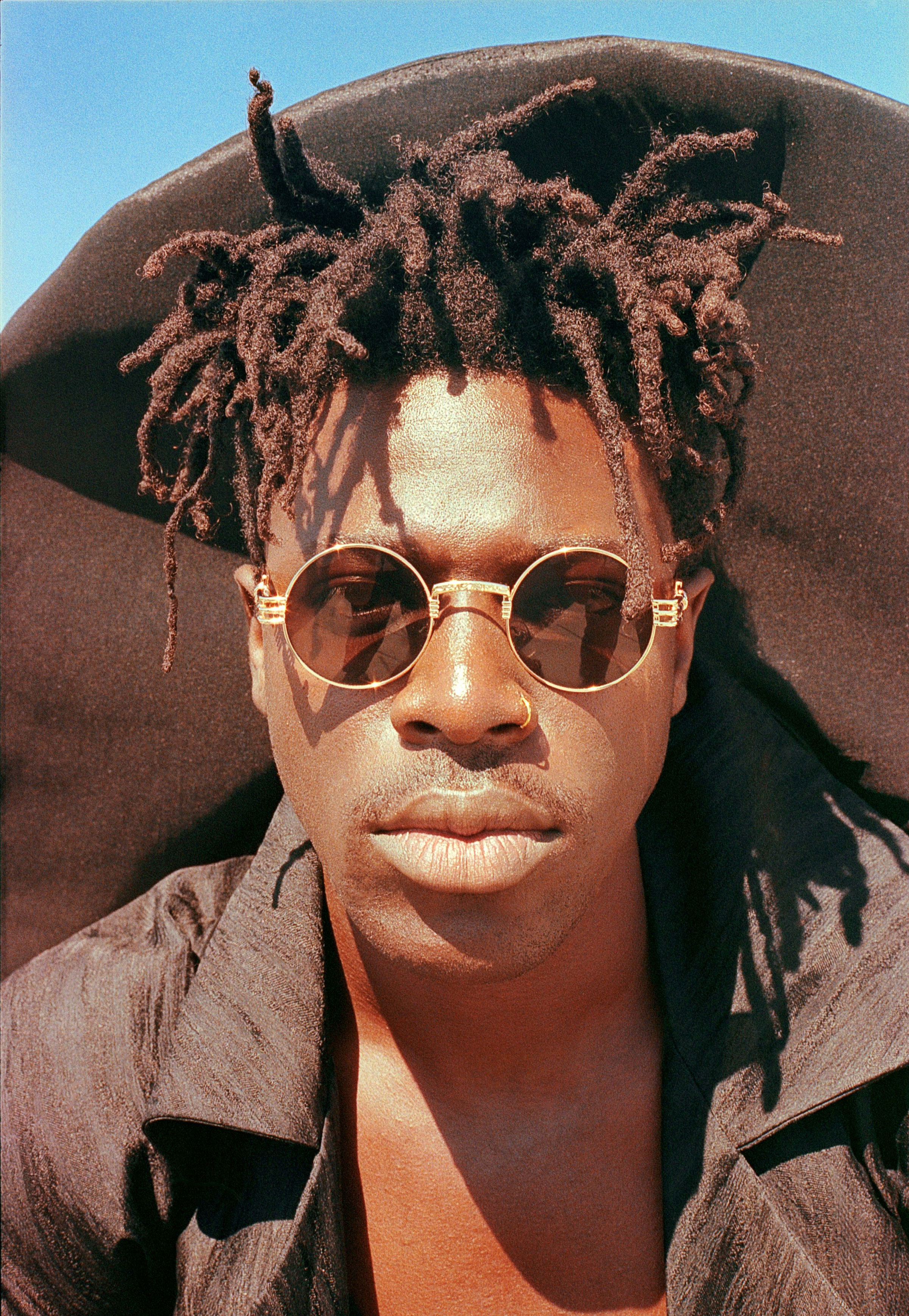
“Maybe because the sun is not shining, people are more moody, they’re more in their feelings”
“I felt like all my career I’ve been waiting in the wings,” Moses Sumney tells me over the phone from Paris. “And it’s really nice to see the music get out there and reach people that aren’t just me.” While the 28-year-old American artist has been quietly making waves with his live performances and material for some time, putting out self-recorded Mid-City Island in 2014 followed by Lamentations in 2016, it wasn’t until September last year his first full length album, Aromanticism, finally brought his talent fully into the limelight. Born in San Bernardino, he moved with his parents to Ghana at the age of 10 before returning to the US to study. He recorded in his bedroom, taught himself guitar and first performed at the age of 20. For Sumney, releasing his debut album marks the culmination of a long process of overcoming shyness and being “diligent and persistent” to bring his songwriting out into the world: “There have been a million challenges. I have so many even now. But I felt this was always what I was meant to do, so nothing was going to deter me from doing it.” The persistence certainly paid off, with Aromanticism being launched to great critical acclaim, including being named one of the best albums of 2017 by the New York Times and Rolling Stone.
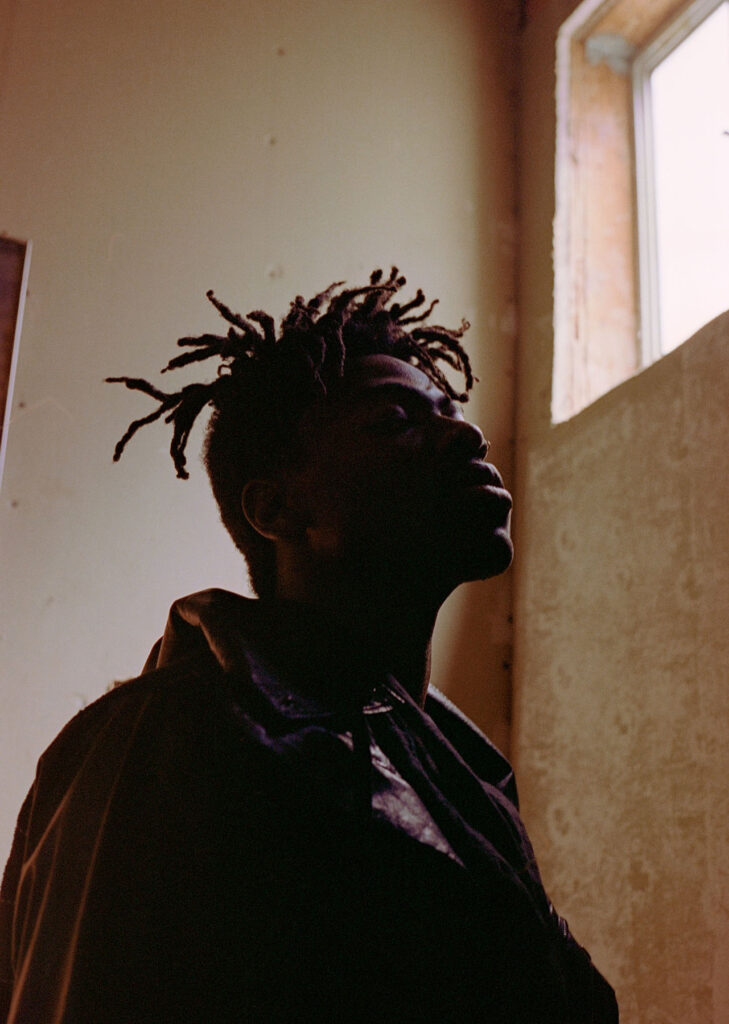
Characterised by Sumney’s haunting vocals and searching lyrics, the album purposefully meditates on a central topic, something he felt would be important to “make the project feel cohesive”: “I decided sonically it needed to feel intimate but expansive. And lyrically and thematically it needed to be about one thing, which ended up being Aromanticism.” The cryptic title alludes to a personal sense Sumney had of his own experience and understanding of love lacking in mainstream representation: “I wanted to explore broader definitions of the word love but also the cracks and crevices of loneliness as well as lovelessness and, more specifically, the absence of romantic love. Most literature, art, music felt like it was engaging with love in a two-dimensional way and I wanted to explore how complex it was.” As he outlines in an essay published at the same time as his album, discussing Greek mythology and the origins of love, he doesn’t see his reflections as rooted only in the contemporary: “These feelings around love don’t start here. People have felt lonely essentially since the beginning of time, there are records of people wanting to be married and not getting the chance to for as long as we’ve had the ability to read.” Rather our modern condition, propelling us inexorably to seek out and find contentment through love and coupledom, and fear our failure, is further exaggerated by the internet: “One of the hallmarks of being a young person alive presently is you think that everything that is happening to you or to your generation is incredibly unique. We tend to navel gaze a lot. But it’s important to recognise our prevailing feelings around love and romance are pre-existing.”
“It’s just the internet era tends to heighten everything, to amplify and augment feelings, cultural movements and observations.”
Informed by his time spent studying literature and writing, there’s an equally academic and poetic approach to delineating emotions that plays out through the album and constantly subverts expectations, each track forming an exploration of a distinct but connected topic to his central thesis. This he feels is best captured in Doomed on which he asks: “If lovelessness is godlessness/Will you cast me to the wayside?” On Plastic he takes aim at how impressions can be out of kilter with reality: “Funny how a stomach unfed/Seems satisfied ‘cause it’s swell and swollen.” His personal favourite Indulge Me meanwhile finds a moment of reconciliation in the wake of bitterness and torment: “All my old lovers have found others,” accepting his past loves have moved on and finding peace in solitude.
Sonically the album is no less idiosyncratic, resisting any easy shoe-horning into a neat genre. Beautifully evocative falsetto and harmonies reach to the rafters with delicacy and calm yet hold a melancholy in their yearning for answers and are pulled back from optimism by a dark undertow of strings and synths. Hypnotic sounds that ebb and flow, crescendo and fall lull the listener deep into what Sumney calls his “sonic dreamscape.” He notes influences stretching back to his time listening to and performing choral music in a high school choir in his late teens. He draws inspiration from jazz via the likes of Ella Fitzgerald and soul from Aretha Franklin and Stevie Wonder. But he also loves folk and indie rock: “It is an amalgamation of different things. The primary tenets of my music are soul and folk and then sprinkle a bit of indie rock, sprinkle a little bit of experimental, sprinkle a little bit of jazz.”
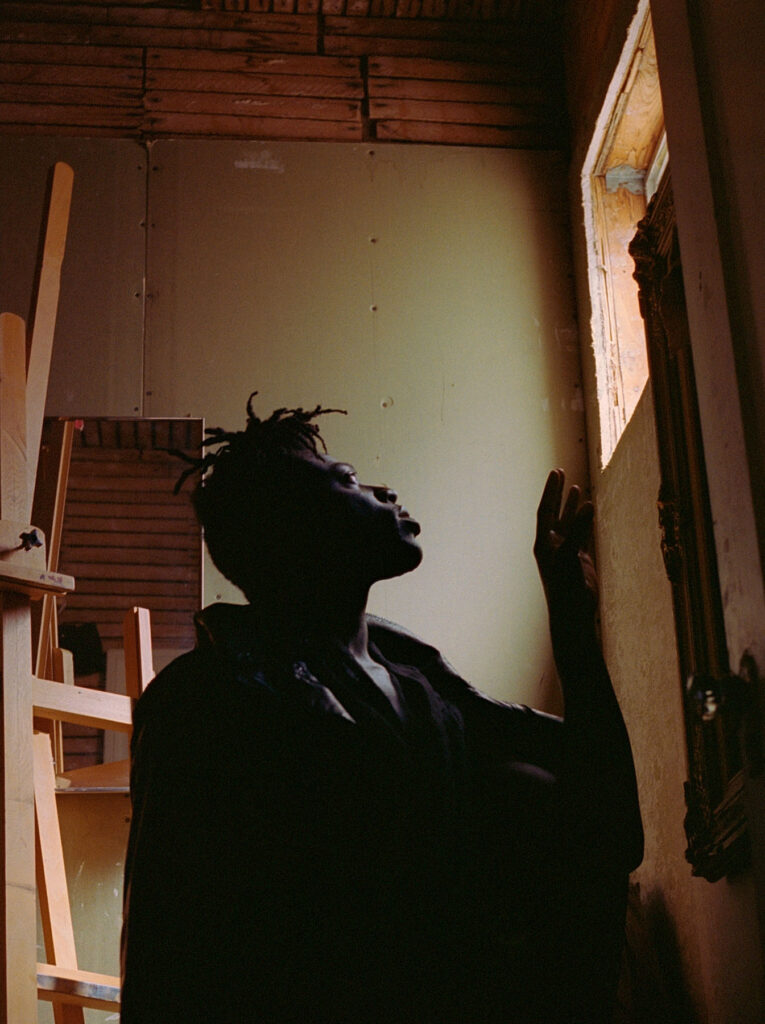
Crucial to his creative output are his otherworldly videos, though he confesses he initially had no interest in the medium: “I never wanted to make music videos, I really hated them growing up and in my early career because I thought they were so boring. Pop videos have so many jump cuts. I have ADHD so it’s really unrelaxing to see all the different ideas flash in front of you.” That all changed on meeting Brooklyn-based Allie Avital, who has now directed or co-directed with Sumney all of his videos – and also convinced him to be in them: “My process is largely attached to her. For at least two of the videos, she came up with the ideas, and for the other two Quarrel and Doomed I did. I have images that flash into my head when I listen to a song, whether an associated colour or an associated scene, so usually I take those ideas and talk to her about them and just flesh them out with her. It’s been an amazing process.”
Now the visual aesthetic is increasingly important to Sumney: “Even when we’re not able to make official videos I try to make a little visualiser for each song on YouTube just so there’s some kind of visual world just attached to it. Listening to the song can give you one meaning of it but then making a visual that can seemingly be semi-detached can help complete the story.” Now there is also a generation often consuming new music for the first time via video: “It’s kind of a great propaganda tool honestly because you can inseminate an image into someone’s mind when they’re hearing something for the first time. You get to control their response to it or at least to an extent their conception of what that music is and what it means. It’s kind of fucked up,” he adds with a laugh. In contrast to the attention-deficit-inducing videos he so hated in pop, his slow-burners each take a seemingly simple concept and execute it in stunning and moving ways. Lonely World takes us to a surreal black and white scene of Sumney coming across a female fish-like creature on a beach. Quarrel is an alternately dreamlike and nightmarish abstract vision of horses. Doomed has Sumney floating in a tank, no mean feat considering Sumney doesn’t know how to swim and had to spend eight hours in the water: “It was nerve wracking but the emotion I was supposed to communicate was one of terror anyway so it was kind of appropriate for me to be scared and uncomfortable.” Sumney further explained the concept, “as a song it is about speaking to God or speaking to the universe and being like, ‘what is the meaning if nobody loves me or if I don’t love anyone.’ It’s engaging with the idea that life sometimes feels like a cruel joke and there’s some higher power or design looking down on us like, ‘Ha ha, that’s funny.’ So I wanted to communicate in the end with the birds eye view, just the idea of looking down at these little rats. It feels like often we’re just like test tube babies with someone vaguely experimenting with us all.” Unexpectedly a seed for the idea was sewn from the final scene in the first Men in Black: “There’s a shot at end where they do this huge zoom out and you see each planet is actually just a marble and there’s these aliens playing with the marbles.”
“It really fucked me up as a child, like ‘oh my god, is someone just playing with my life?’ I wanted to tap into that in Doomed.”
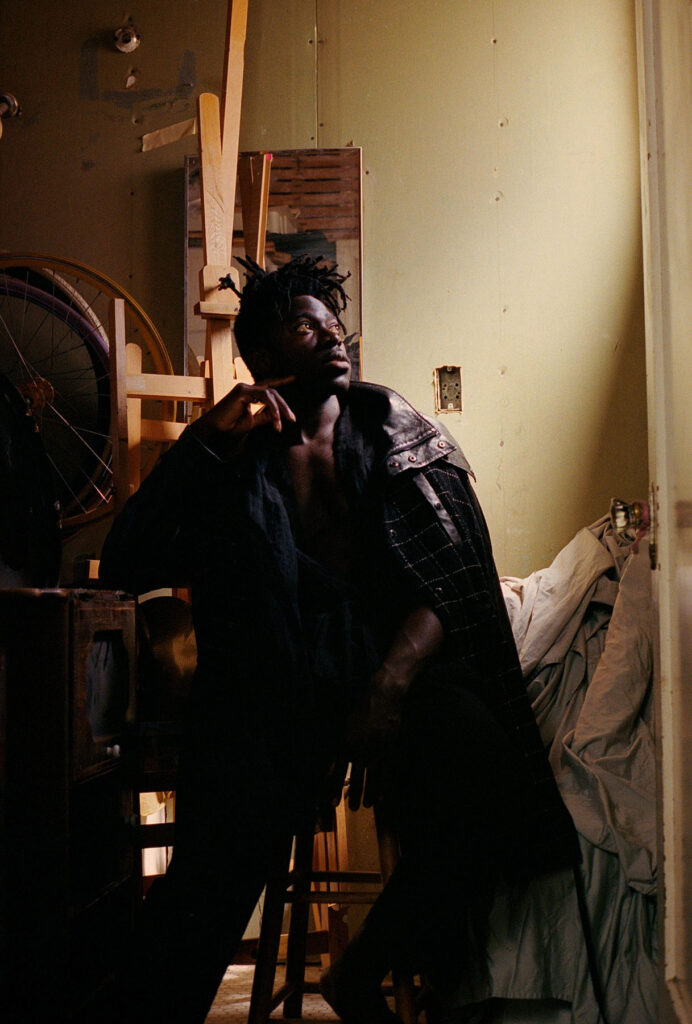
Collaborations have formed a key part of Sumney’s career, including co-producing and singing the opening track on Beck’s covers compilation Song Reader and holding a guest spot on Solange’s A Seat at the Table album. Last year he performed at the Oscar’s alongside Sufjan Stevens and St Vincent on Mystery of Love from Luca Guadagnino’s Call Me by Your Name, nominated for Best Original Song, an experience he live Tweeted to hilarious effect. He tells me: “From the stage I could see Meryl Streep, I could see her. So that was cool, you know, not unnerving at all…” Since Aromanticism’s release he’s also hit a packed schedule of festival and gig dates worldwide including London’s Field Day and Germany’s MELT!, as well as the US’s Coachella and Pitchfork Festival and he sold out Sydney Opera House in February.
Coming out of his shell and putting his work on the stage is something he is still challenged by. On the one hand seeing tracks he wrote and practised in his bedroom move and connect with people who don’t even share his language has been exhilarating, yet hitting new cities every few days has also left him feeling “unbalanced”: “It’s a pretty unnatural thing for a human being to do. So it’s incredibly euphoric but maybe I would better describe it as manic. Sometimes you feel really high, sometimes you feel really low: my mood changes every five minutes. It’s a pretty wild ride but I love singing and I love performing so it feels really good.”
It’s London though that Sumney admits is his favourite place to be and play: “People on this side of the world tend to embrace experimentation a lot better than where I’m from, better than Los Angeles especially which seems beholden to commercial music tropes often, even in the indie scene. I appreciate in London I have room to be weird, I have room to experiment, I have room to be soulful. Maybe because the sun is not shining people are more moody, they’re more in their feelings,” he says, only half-jokingly.
A move away from his home country he also reflects is to do with a detachment from the political situation there, one he sees has been deteriorating for much of his adult life: “It feels pretty futile to let it upset me. Since last year I’ve been spending most of my time in Europe and most of that in England. I think I’ve been through so many phases of being enraged that sometimes I take a little break, which I’m doing now, and then I just focus on music which helps me feel better, balanced, cleansed, sane. Maybe it is a bit escapist.”
Cognisant of the fact that the industry doesn’t allow complacency, since the album’s launch he has also released extended version Make Out in My Car: Chameleon Suite with various reimaginings of the original track, including a duet with Alex Isley, a James Blake remix and a new song based on the original by Sufjan Stevens. Most recently in August came three-track EP Black in Deep Red, 2014 including Rank & File which holds a fresh energy, with fingers clicks and marching beats reminiscent of military protest. And he’s already been cooking up his next record: ‘It just takes a long time to make an album, you kind of have to get right back in if you want to do it again.” The next one he says, “is going to be louder and crazier, a little bit more experimentation but also a little more focus on the songwriting. I think it will just feel like another step or another chapter to the same book. I feel I have a lot of freedom and can do whatever I want so I’m really just trying to challenge myself to make music that doesn’t sound like everything else.”
He recognises however this is perhaps not the case across the industry: “There could be more room for weird music in the general dialogue. Sometimes I feel like now is a really free moment and then other times I feel the internet is making everything be one big amalgamated sound. It has opened things up more so that you don’t need to be backed by a huge record label. But I don’t feel things are diverse enough.”
“Even when weirdos come into the mix there has to be an element of familiarity to what they do in order for it to connect or be shared and pitched to the masses. I think that blocks diversity from being genuine.”
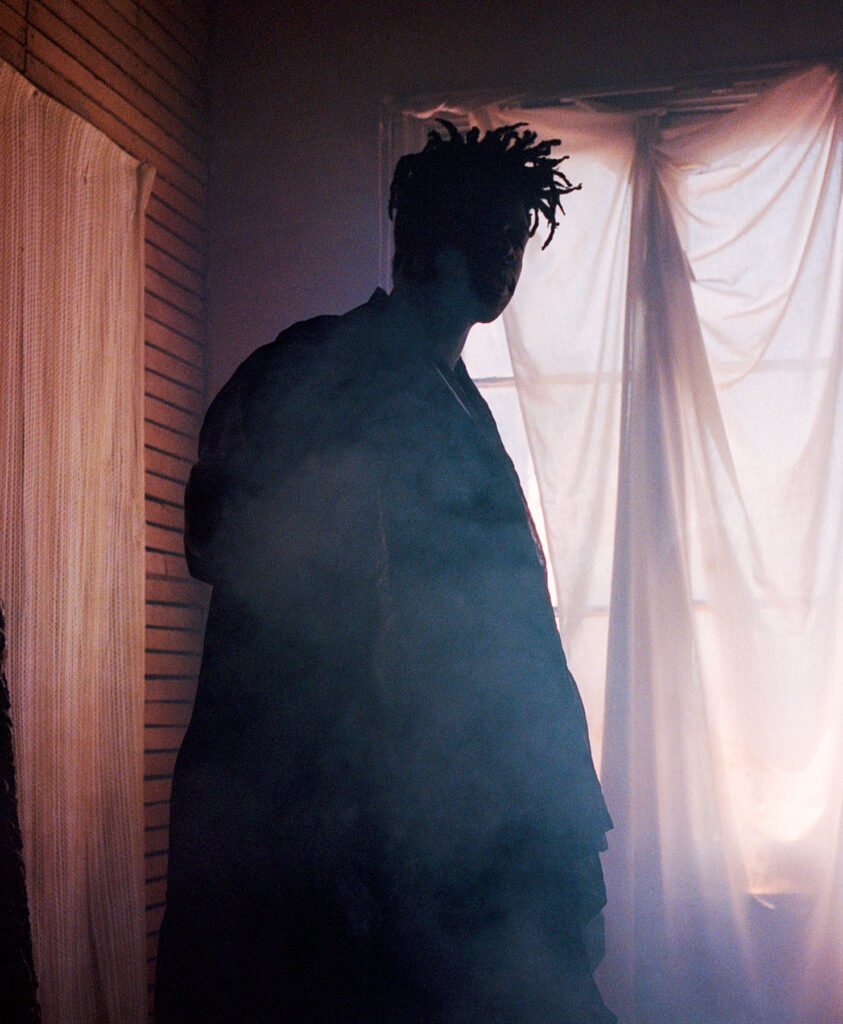
In particular, he warns that an impression of greater diversity can hide a lack of true progression: “I feel this current moment, this generation is a little bit too like, ‘let’s pat ourselves on the back, there’s a black person singing.’ Like, ‘cool, good on us.’ And I think that self-congratulatory attitude has a tendency to stifle growth. I’m not ever really going to be the kind of person that’s going to say ‘there’s enough women playing guitars.’ I’m like, ‘there’s two. So let’s calm down.’”
Credits
Photography · Aaron Sinclair
Photo Assistant · Brandon Bowen
Fashion · Phil Gomez
Talent · Moses Sumney
Words · Sarah Bradbury
Designers
- Hat CANDICE CUOCO Sunglasses and Coat Artist’s own
- Coat CAMOUFLAGE Vest and trousers RESURRECTION